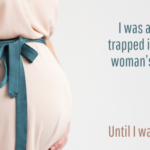This is one of those “I’m not a lawyer, so I may be completely off-base, but if I’m not, then this might be a ruling worth paying attention to” type of cases, so please bear that in mind if you have chosen to continue reading and did not close this tab and move on to doom scrolling through TikToks or making sure your fantasy football roster is set for this weekend.
For quite some time now, I have been writing about rulings from judges who have deemed that in order for a plaintiff to have standing to sue, a concrete injury had to be suffered. In many of those rulings, claims of suffering from anxiety, or mental or emotional distress were tossed aside as judges ruled that there must be some form of financial injury in order for the standing threshold to be met. Well, a District Court judge in Illinois has denied a defendant’s motion to dismiss, ruling that a lack of sleep, a loss of appetite, and an inability to focus while working is enough for a plaintiff to have standing to pursue his claim that the defendant violated the Fair Debt Collection Practices Act when it attempted to collect an unpaid medical debt by sending letters that allegedly did not contain the proper disclosures and because the defendant should have known that the plaintiff was represented by an attorney.
A copy of the ruling in the case of Mladenov v. R1 RCM, d/b/a Medical Financial Solutions, can be accessed by clicking here.
Along with the claims referenced above, the plaintiff also claimed to have borrowed $1,000 from a friend because he was worried he was not going to be able to pay his bills and the alleged debt and repaid that amount with interest, but Judge Mary M. Rowland of the District Court for the Northern District of Illinois instead used the other claim as the basis for determining that the plaintiff had standing to pursue his lawsuit.
Looking to other rulings from her district, such as Billups v. I.C. System, Judge Rowland determined that the plaintiff’s “allegations of loss of sleep and appetite fall within this category of injury, which while slight, rises to the level of concrete injury under the FDCPA.” The category of injury she is referring to is one where an amount of “distress so powerful as to cause ‘[p]hysical manifestations’ may rise to the level of a concrete injury, even if those physical manifestations are relatively slight.”









